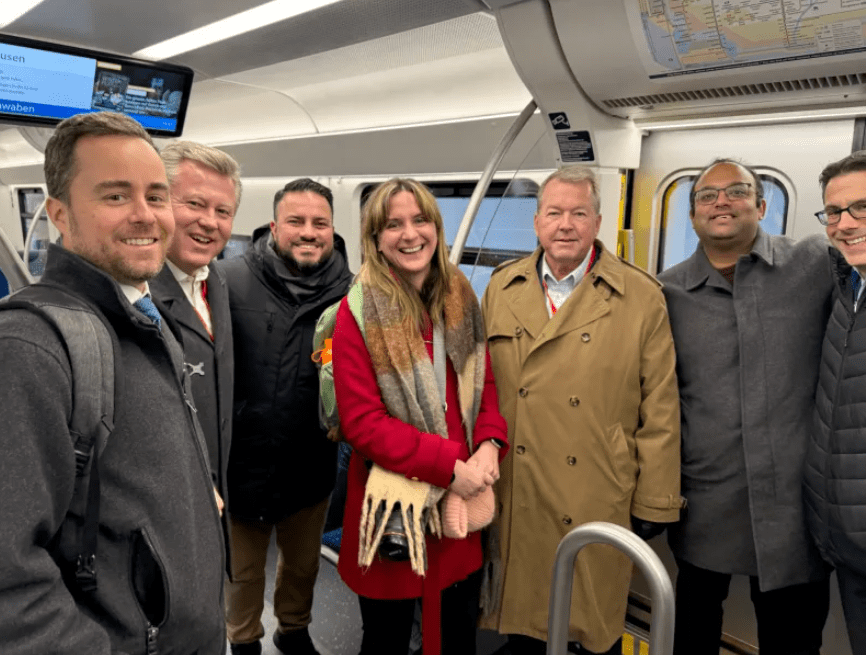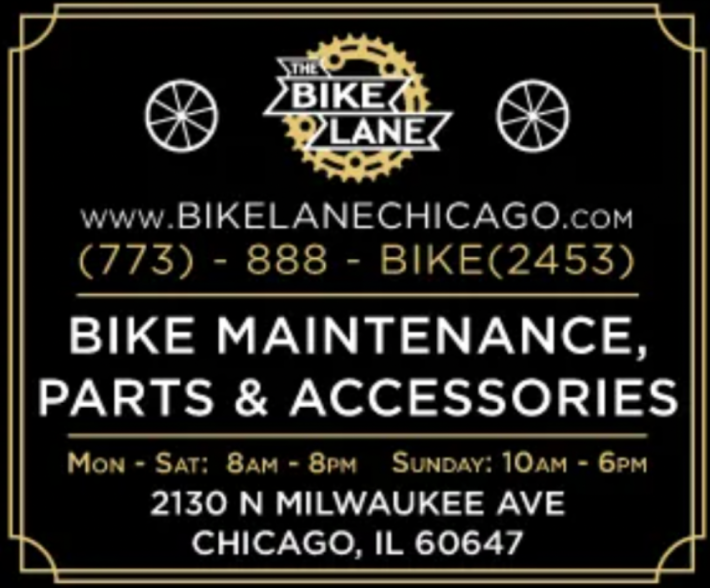
"Had a feeling that you would be on that train
So I just waited there for you"
- "Megan" by The Smoking Popes, 1997. The band got its start in suburban Lake in the Hills, located in Sen. DeWitte's 33rd Illinois State Senate district.
At this point, Streetsblog Chicago has interviewed seven public transportation-friendly Democratic Illinois State legislators about the looming $771 million Chicagoland transit fiscal cliff issue. To get a different perspective, I contacted a lawmaker on the other side of the aisle, Sen. Don DeWitte. His 33rd Senate District includes parts of several far-northwest-suburban municipalities.
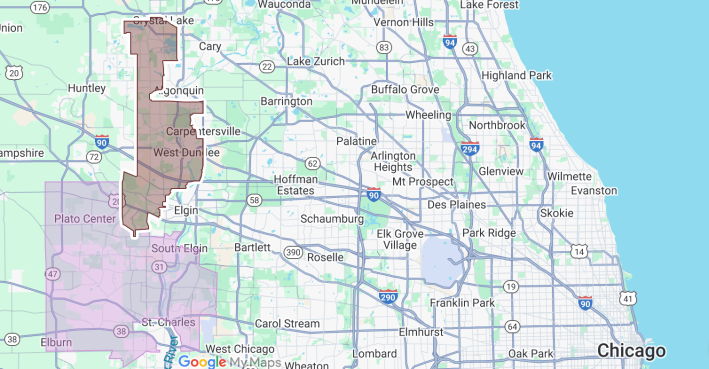
My discussion with Sen. DeWitte proved that, contrary to what one might assume from recent headlines, "transit-friendly Republican" is not an oxymoron. In fact, from 2013-2018, he represented Kane County on the Regional Transportation Authority board. And he even went on a recent public transportation fact-finding tour of Germany with other state legislators.
Sen. DeWitte and all the other GOP Illinois state senators voted against against the transit revenue and reform bill that passed the Senate last May, but wasn't voted on by the House. However, he appears to be on very cordial terms with the Democrats working on the issue. He told me he wants to solve the problem through a "bipartisan, bicameral process," a refreshing attitude during the current troubled political times.
This is a long interview, edited a bit for clarity and brevity, but I think Streetsblog readers will find it to be a worthwhile conversation. Even if you disagree with some of Sen. DeWitte's assertions, you'll find he sheds some interesting light on Springfield's transit governance and funding bill sausage-making process.
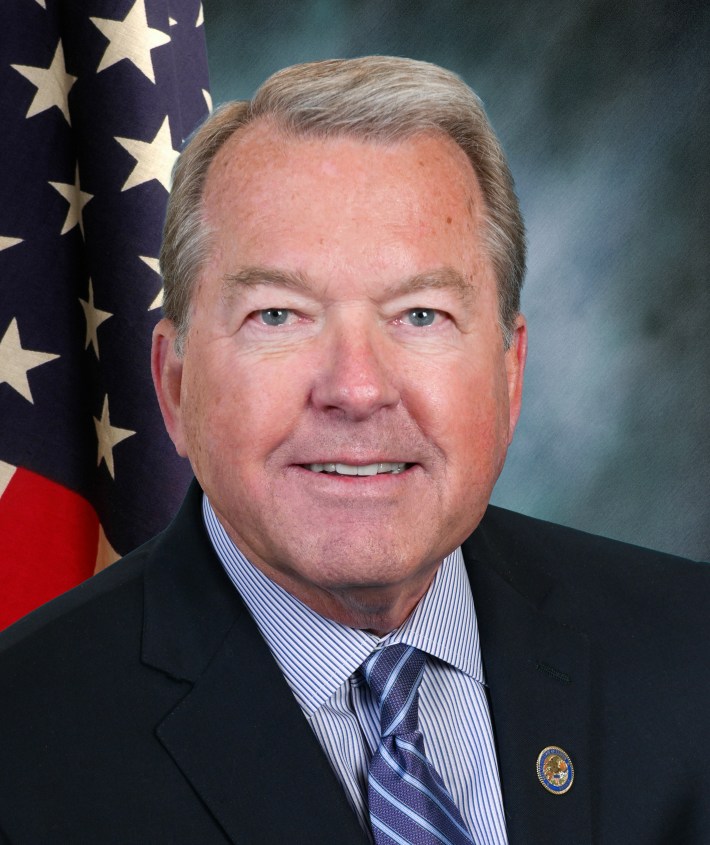
John Greenfield: You represent St. Charles and your constituents rely on transit, correct? They use Metra and Pace?
Senator Donald DeWitte: Absolutely. My district actually covers Kane County, McHenry County and DuPage County, all current members of the [Regional Transportation Authority] region. So I have constituents in all three of those RTA counties who rely on transportation, predominantly in and out of the city on a daily basis.
JG: How should I describe your title in terms of what's going on with the transit conversation?
SDD: Representing three of those districts, that constitutes the 33rd Senate District. My other role regarding transportation pertains to my position as Minority Spokesperson on the Senate Transportation Committee with Senator Ram Villivalam from Chicago. He and I have had a very strong working relationship over the last six or seven years. This happens to be an issue that, while he and I have differences of opinion, we still have what I consider to be a very respectful, considerate relationship. I've heard him say the same thing on a number of occasions. So some of these things, we're just going to agree to disagree on, and we're going to move forward to try to find the best solutions.
Trip to Germany
JG: And you also made the trip to Germany to study the transportation system. Do you want to briefly tell me how that went down and what you learned?
SDD: Sure. It was the first week of December 2024 there was a contention of about eight or ten legislators. There was representation from Labor, representation from the [sustainable transportation advocacy] community, as well as representation from the various transit worker unions, predominantly CTA, but there's there were also some Pace and and Metra representation, so it was a very broad-based group of invested parties in this particular subject.
We saw why Germany is considered to be one of the best mass transit systems in the world, from street trams to go block-to-block, to inner city subway service in Munich or Berlin, the two specific areas we spent time in, to the regional train operations, all the way to the high-speed intra-state or intra-country transportation system. The seamlessness, the high quality service, the coordination between the different agencies, and the different types of service that are provided.
It was really just an opportunity to see how good a system really can be. And as I've said to people since that trip, if we can corral 2, 3, 4 percent of what has been so successful in Germany here in Illinois, particularly in the metropolitan area, we will be making significant headway in starting the process of developing a system that, as my transportation partner Ram Villivalam likes to say, that will be state of the art in the next 50 years. So this is not a quick fix. It's a marathon, not a sprint.
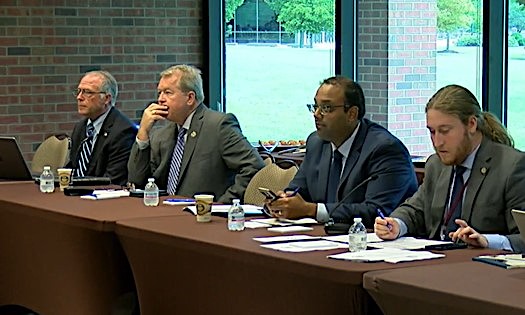
I was a mayor for eight years in St Charles, and the old saying was, you have to make decisions for 25 or 50 years down the road, to make big decisions. I certainly would categorize this process as being part of that philosophical decision making process.
Why did all the Senate Republicans vote against HB 3438?
JG: So you voted against Sen. Villivalam's bill HB 3438 [which passed in the Senate at the end of the spring legislative session on May 31, but wasn't voted on by the House] right?
SDD: I personally, along with the rest of the Republican caucus in the Senate, voted against the bill, along with a handful of Democrats. But it was interesting that there were bipartisan votes against this legislation. And there were a number of Democrats who decided it was a good time to get up and go grab another cup of coffee, basically take a walk so that they would not be on the record as either supporting or were voting against this initiative.
Republicans felt that a significant portion of the burden to generate this $1.5 billion dollar revenue stream that Chairman Vilivalam thought was important, we just thought there was too much of the burden being put on taxpayers across the state, across the entire state, let alone the six county metropolitan area that really most of this RTA reorganization is going to be affecting long term.
JG: According to Sen. Villivalam, there would also be $200 million for Downstate transit systems. Is that your understanding too?
SDD: That was in the bill. We were fully aware of that. But we were also fully aware of the fact that, some pieces of that revenue stream, i.e. via tax structures... As part of HB 3430 and the imposition of a new real estate transfer tax that was supposed to be generating nearly $200 million a year in new revenues, that was being pushed on to suburbs in the five collar counties, none of that money was going to operations. That $200 million was being appropriated to fund affordable housing in transit oriented developments in an attempt to put more affordable housing near Metra stations across the region.
We felt all along that the Senate, which is where most of this conversation was happening last year year, should have been dealing with the problem at hand, the $771 million fiscal cliff, and kind of looking down the road a little bit to address the requested or required $1.5 billion new revenue stream that various advocates were suggesting was going to be needed in or to really start the process of transitioning the existing RTA system into something that could potentially someday look like what Germany has been able to accomplish.
One of the things that was really interesting in Germany was the fact that the government covers virtually all capital expenses: tracks, bridges, rail crossings on roadways, in some cases, locomotives, passenger cars.
The RTA has to cover all of that. The three separate service boards have to cover all of that within their own operating expenses. You can imagine what a significant savings that would contribute to the service boards if they not have to deal with all of those significant capital investments on an annual basis.
So for a year and a half through all of the public hearings last year, the plan was to run governance on one bill, and revenue on a second bill. And Chairman Villivalam always represented to me that he would never have support from Chicago legislators for new revenues without governance structural modifications.
JG: Yeah, that was kind of their slogan, "No new revenue without reforms."
SDD: Precisely. And we [Republicans] committed to help them with that, because there were probably a lot more issues we agreed with regarding governance than issues we were concerned with on the revenue side. So we offered support for the governance side of the equation in order to help him garner Democratic support for new revenue.
Four days before the end of the spring session, literally, the Tuesday before the last Saturday of session, the decision was made by Democratic leadership: They were going to try to do governance and revenue in one bill.
We already knew there was a $1.4 billion tax increase coming in the new [general state] budget. There was no way in Hell we [Republicans] were going to put any votes on a second billion-dollar-plus tax increase that would have affected every resident across the state of Illinois, not just the RTA metropolitan region. When Ram told me that [reform and revenue measures were] going to one bill, we [the Republican caucus] came off that bill immediately and had no intentions of supporting it.
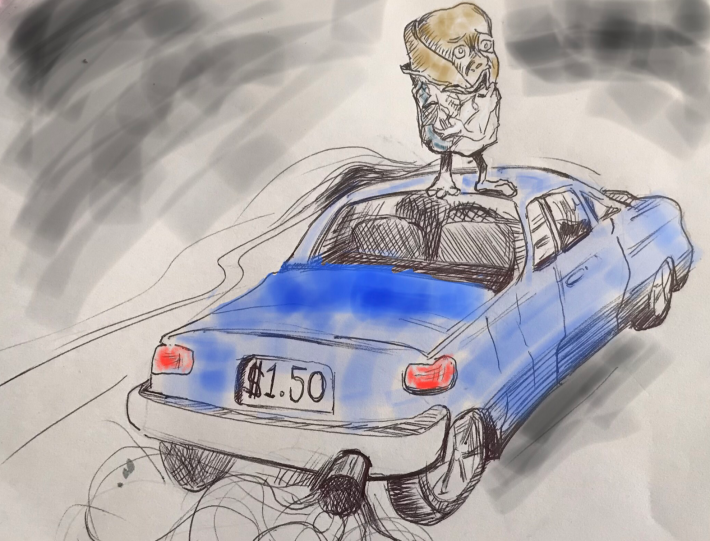
The HB 3438 transit governance and revenue bill includes a $1.50 "climate impact fee," which Streetsblog has nicknamed the "burrito taxi tax," on retail and restaurant deliveries, not including medicine and groceries, made by motor vehicle. Illustration: Jonathan Roth
What does Sen. DeWitte think would be a fair structure for NITA?
JG: And so were Republicans satisfied with the the proposal for governance reform, for example, the establishment of the Northern Illinois Transit Authority to replace the RTA?
SDD: Yeah, we supported the reconfiguration of the RTA board into the NITA board. We we had a difference of opinion on how the voting structure of the new Nita board would be put together.
As you may know, the RTA board currently operates on majority vote requirements. Most day-to-day issues on the current RTA board require a 66 percent majority vote and any financial-related matters on the current RTA board, be it budget, capital expenditure, debt service or ceiling, anything financially related, would actually require a 75 percent majority vote of the existing RTA board.
I can tell you, I sat on the RTA for five years, from 2013 to 2018, representing Kane County. Not one time in that five year period was there ever a situation where one particular representative block tried to either push something down everyone else's throats or prevent something from occurring by holding votes.
It forces collaborative debate on those significant issues, and that system works.
The new NITA board, and the new voting structure in Senator Villavalam's bill, actually gave two options for voting requirements. There were four camps of five members that would have been appointed to the new board: Five members picked by the Cook County board president, five appointees from the governor, and then one member from each from the five collar counties.
In Ram's bill, 15 out of 20 could have been allowed to pass any action of the new NITA board. That would literally give the opportunity for the City, County and the governor's picks to steamroll the five collar county members, by those three blocks simply voting for an issue, totally shutting out any collaborative representation from the collar county representatives on the new NITA board.
Our position was a minimum of 12 votes on every action. It required a minimum of two members from each of the four five-member camps. In other words, a majority vote for any action the NITA board would take.
Both of those options were contained in 3438. We were dead-set opposed, as were a number of Democrats, to allowing the City and Cook County and the Governor's Office to have control of that process.
One of the other interesting pieces of that bill, it called out that the new chair of the NITA board would have to be selected from one of the five governor's picks. We saw that as being problematic, only because that would have that would have given the governor virtually control over a process that, frankly, the State of Illinois is the smallest contributing state government to any of the major mass transit systems in the country.
JG: Right, the State of Illinois chips in only 17 percent of operations funding.
SDD: Correct, smallest in the nation. To give the Governor's Office control over that process, we saw as being problematic, and again, another reason on a long list of why we chose not to support 3438.
JG: OK, so you explained a NITA structure that you would be comfortable with. Are you on the same page with the Democrats that the new NITA needs to be more powerful than RTA is, to be able to make decisions about things like a universal fare system, and coordinating service?
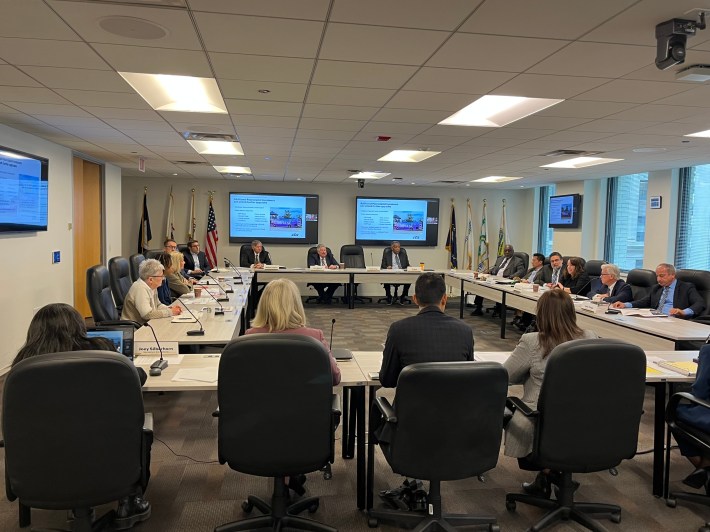
SDD: I am. I believe one of the great unfortunate parts of the RTA when it was initially established back in 1976 was the fact that RTA never had full authority over the three service boards. The RTA was responsible to be the revenue funnel to make sure funding coming into the region was distributed appropriately between the service boards. And the other major responsibility of RTA when it was originally established was to oversee longterm planning of the entire three service member process. They have never had the authority to be able to force coordination between Metra, CTA and Pace.
Since the RTA's conception, all three of those agencies, have operated in silos, basically calling their own shots, making their own schedules, determining their own fare structures, and there's never been a concerted effort on any of their parts to attempt to coordinate into one bonafide transportation system. I and my fellow Republicans believe that that [creating NITA] was a very positive change in terms of what the new agency would have the authority to do.
I mean, it's as simple as, if the old RTA board were to say, "We want a Pace bus sitting at every Metra station when an outbound train shows up," RTA has no authority to force that to happen. I believe they will in a newly empowered NITA board that will have operational, fare structure, and budgetary oversight over the three service boards, collectively. That's sorely needed, and that's something everyone in this process has agreed with.
Ironically, the governance bill that had been floating through the House, and I had numerous conversations with House transportation colleagues at the end of the session in May, our philosophy on voting rights, has been aligned with the House's position on voting rights, allowing fair voting equity for all members of the NITA board. I know they're all working on a separate piece of legislation right now. We're kind of waiting to see what that outline is going to look like. We are certainly hoping that, as the Senate Republicans and [the House's Public Transit Working Group] leaders were in sync regarding equitable voting on the new NITA board, we hope that will stay in whatever outline the House brings forward as a counter proposal during veto session.
Senate Republicans will be proposing our own separate piece of legislation,
aside from whatever the House comes up with. We believe there are much more equitable ways to deal with the fiscal cliff issue, without the drastic, dramatic, multi-billion-dollar tax increases that the Senate Democrats have proposed in 3438.
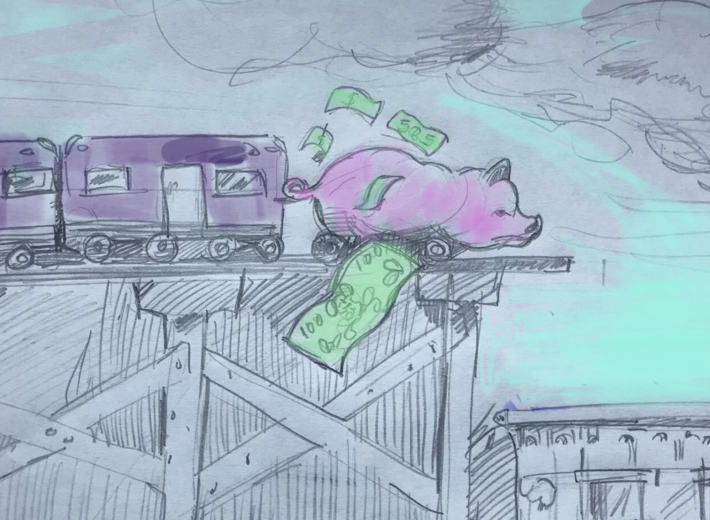
Is Sen. DeWitte cool with raising $1.5 billion for transit?
JG: OK, are you in support of raising $1.5 billion for transit, including $200 million for Downstate systems? Is that something you're you're on the same page with Sen. Villivalam about?
SDD: Sort of. [Laughs.] We [Republicans] believe there are better ways to fund that. First of all, Ram wants to take the big bite and grab all the billion and a half right now. As I said earlier, we think we need to concentrate on the fiscal cliff.
JG: You're saying we need to concentrate on raising $771 million to address next year's fiscal cliff?
SDD: Yes, I believe we need to deal with the problem at hand, rather than looking to take a great big fight and try to solve this problem if in one huge tax increase process. We [Republicans] believe that the fiscal cliff can be dealt with – and maybe we end up somewhere in the middle, John – but we believe there are other ways to fund this fiscal cliff crisis without having to pass all of these exorbitant tax increases, particularly on the RTA member communities, let alone the entire state of Illinois.
I mean, I have no idea why someone in Marion or Cairo or Carbondale should be required to pay one penny towards solving an issue that only involves five collar counties plus Cook in the Chicago metropolitan area. Most of those people will never even see or need a CTA, Pace, or Metra bus or train. There's no reason to spread this pain over the entire state.
JG: Well, Carbondale is a university town with a bus system. So they would benefit from this, wouldn't they?

SDD: They do, there are actually 54 Downstate transit agencies. And keep in mind that when they came to their public hearing in May, they were only looking for an increase in revenues of between $80 million and $90 million dollars. I believe the reason that number was inflated to $220 million was an attempt by Democrats to buy Downstate legislator support for this initiative.
I'm not saying the Downstate transit systems don't need some help. But those various ladies and gentlemen who testified, they don't have nearly the amount of post-pandemic issues that they're dealing with like the RTA does. Most of those Downstate systems are in college towns. Most of them are communities where many of those people were required to go back to work, where they were working, after the pandemic. They did not have this whole workforce, workplace cultural transition we had here in the Chicago metropolitan area.
There are still state agencies, John, who still have not been required to return back to their assigned offices. There are a number of state employees still working at home due to policies that were established during the pandemic. I think that's a horrible waste of money. I think it makes reaction and customer service time from the various state agencies problematic.
That whole workforce, workplace environment never affected the Downstate regions like it did here in Chicago. I don't think they need as much help as we need to address with what we're dealing with in the Chicago metropolitan area.
What would be a fair revenue source for avoiding the fiscal cliff?
JG: I think you said earlier that you think that the HB 3438 revenue sources would be a little inequitable? Do you have in mind any revenue streams that you do think would be fair?
SDD: Sure, we [Republicans] think that, and our Labor friends agreed, that $200 million of earned interest from road fund dollars that are currently sitting in a bank, because projects aren't being rolled out quickly enough, could be used to peel away some of that $771 million.
We believe that the governor again, reminding everyone that Illinois is in last place with regards to investment in public transit, the governor has over $3 billion sitting in his infamous rainy day fund. And if he hasn't noticed, it's raining in the transit world. We believe they have publicly touted the fact that they've earned over $600 million in just interest alone since the Rainy Day Fund was initiated. We believe $200 million to 300 million of interest earned from the rainy day fund could very easily be used to help peel away more of that $771 million.
I have not seen any response [to these ideas] from the Governor's Office. I know there have been significant, numerous conversations between Democrats and the Governor's Office, but for some reason, whoever the governor has put in charge of overseeing those discussions has decided not to include Republicans in the conversation.
The other big piece of revenue that everyone seems to want to be avoiding is this $200 million what everyone refers to as the Wayfair sales tax bonus.
There was additional sales tax revenues being generated after the legislature put Internet sales tax on out-of-state sales coming into the state of Illinois. I believe it was the Illinois Policy Institute that discovered that RTA alone was receiving over $200 million in additional sales tax revenues because of the Wayfair tax legislation.
JG: I thought that it was good news that the RTA had identified this extra 200 million or so from the new sales tax.
SDD: It's clear that they had identified it after the fact. It's unfortunate thata think tank organization had to illuminate it for people to be aware of it. Do I think RTA may have been sandbagging that $200 million? I think that's possible.
But the fact that it was a windfall in their ongoing sales tax revenue stream, I believe that $200 billion should be used to help defray that $771 million fiscal cliff. So just on the surface, if you take $200 million in road fund interest, if you were to take $300 million in rainy day fund earned interest, and then add another $200 million in windfall Wayfair sales tax revenues, you're at $700 million. It's tax dollars that have already been paid, tax dollars that have already been invested, and revenues that are being generated because of those tax dollars that have already been paid by the taxpaying public of the state of Illinois. You've damn near solved the fiscal cliff issue without one dollar of tax increase.
Can Illinois Republicans and Democrats join forces to save transit?
JG: So if you look into a crystal ball now, what's your prediction? I was talking to State Rep. Eva-Dina Delgado, and she was pretty confident that she and Rep. Kam Buckner, the folks who are leading the transit working group, are going to be able to come up with a proposal that's going to pass with a 60 percent supermajority in the October six-day veto session. But if that doesn't happen, then we're going to really be in danger of 40 percent service cuts and 3000 layoffs in Chicagoland.

So do you agree with their optimism? Do you think that the Republicans and Democrats are going to be able to find some middle ground and sufficient time to pass that legislation with the supermajority in October?
SDD: Let me answer that question this way. Rep. Delgado and Rep. Buckner have both been extremely forthcoming in their willingness to discuss solutions to this fiscal cliff issue, in an attempt to avoid those service cuts and those layoffs, I will tell you that Republicans in the Senate and the existing transit Democrats working on pulling this new package together are much more aligned philosophically than we ended up as Republicans in the Senate with our colleagues across the aisle [in the Senate].
I am confident that between parties involved in the conversation, we will be able to come up with a package that solves the fiscal cliff issue. It may not address the entire billion-and-a-half-dollar revenue stream that everyone seems to want, but I am confident that a package will come together, that there can hopefully be not only majority votes the Democrats have the ability to do, as you well know, in both the House and the Senate, we believe there will be an opportunity to take a position on an issue that hopefully can solve the fiscal cliff issue and head off service cuts and mass layoffs.
JG: Obviously we're living in a very divisive time, and it would certainly be a nice symbolic thing if parties on both sides, who have a common enemy in the fiscal cliff, are able to find some common ground. It seems like if you can do this, it would really be a win for everybody involved. Your constituents will be very happy with it, and it'll just be nice to see that Republicans and Democrats can work together and get stuff done.
SDD: I couldn't agree more. Let me summarize with this if I may. I was involved with [the $45 billion state infrastructure funding package] Rebuild Illinois right after I came into the Senate back in 2018. When that program came together, at virtually every meeting pulling that program together to build bipartisan consensus, there were Republicans at the table from the House and the Senate. There were Democrats at the table from the House and the Senate. There were members of the governor's administration. There were members of the financial appropriations process. On a bipartisan, collective basis, we passed the largest infrastructure bill in the state's history.
I challenged my Senate colleague Ram Villivalam, let's follow the same bipartisan, bicameral process to try to get this thing done. We're only talking we're only talking about a billion dollars, give or take a half a billion. But I actually believe this is more important than that $45 billion Rebuild Illinois program, because this particular problem solves issues for so many more people, the 1.3, 1.5 million people who count on mass transit every day, to get to work, to get to school, to get to their doctors appointments, to get to see their family, to get to their babysitting assignments. This is more important than that, $45 million Rebuild Illinois program.

I'm hoping we can get back to a bipartisan, bicameral approach to solving this issue, because I think that process is what's best. It's the best interest in every taxpayer in the metropolitan region.
Check out our interview with House Speaker Welch about public transportation funding here.
Read Streetsblog's recent interview on this topic with Senate President Harmon here.
Read our interview with Sen. Villivalam on this subject here.
Check out our interviews with State Sen. Mike Simmons and State Rep. Hoan Huynh on the topic here.

Do you appreciate Streetsblog Chicago's paywall-free sustainable transportation reporting and advocacy? We officially ended our 2024-25 fund drive last month, but we still need another $44K to keep the (bike) lights on in 2026. We'd appreciate any leads on potential major donors or grants. And if you haven't already, please consider making a tax-deductible donation to help us continue publishing next year. Thanks!
